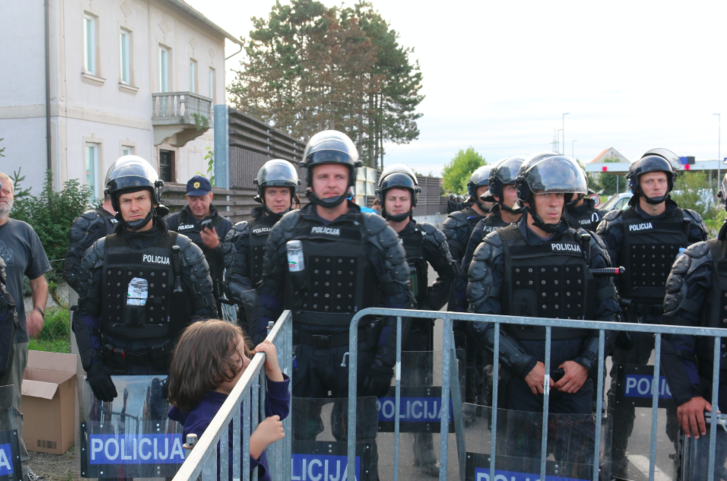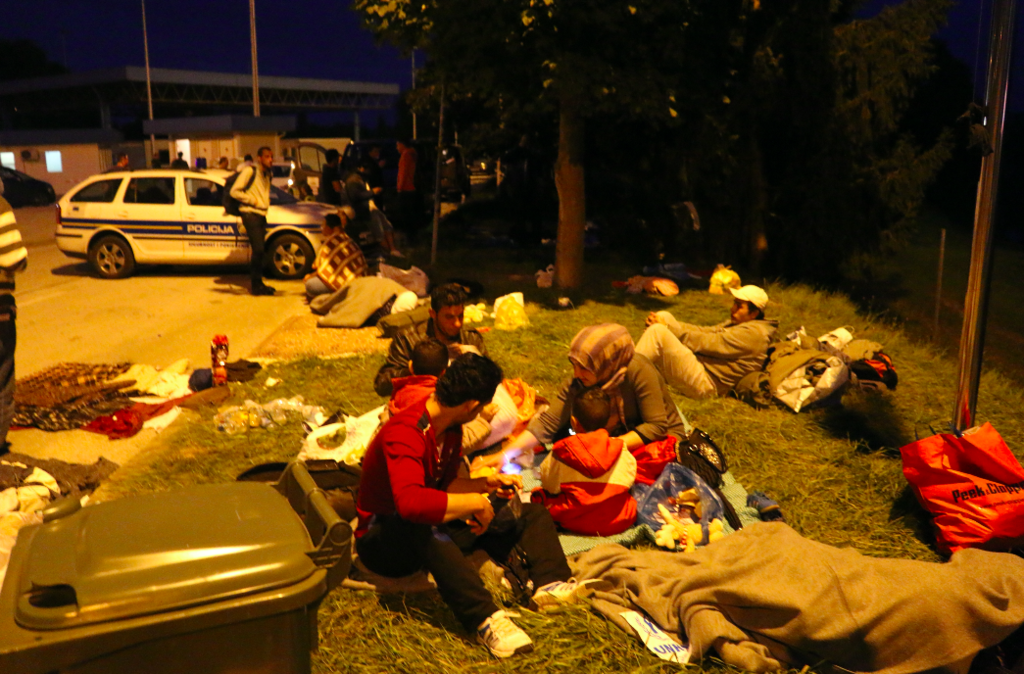
HARMICA, Croatia — "We were here last night," said Adeeb, a Syrian refugee. He shook his head. "They still won't let us through."
Leaning against the bridge that joins Croatia with Slovenia, he looked over at the line of police that guarded entry into the neighbouring country. Dressed in black, some with cans of tear gas strapped to their chest, the officers rested riot shields against their knees.
Adeeb, who fled his home in Homs four years ago, turned and pointed to the river. "I tried to cross over the water, but the guards caught me," he told BuzzFeed News. "They told me: 'Either you go back to the other side, or it will be something worse.' So I had to go back."
Adeeb was one of hundreds of refugees who arrived at the Croatian side of the border by taxi, car, and train from Zagreb on Saturday. Now, they were standing in the blistering heat, looking on at the wall of police.
"We want go! We want go! We want go!" they chanted wearily. When their energy waned, a few whipped the crowd into an energetic frenzy. Men propped children up on shoulders, waving their arms and clapping in sync to the rhythm of the chants. "Open the border! Open the border!"
This bridge is the latest front line in a rapidly evolving – and escalating – crisis that has swept across Europe this summer, recreating similar scenes of desperation at border after border as successive governments fumble over how to deal with the waves of people trying to get in.
Adeeb has witnessed this rolling chaos first hand: In Greece, when attempting to cross into Macedonia; in Serbia, where the border into Hungary was sealed off; and now here.
Police lines, barbed wire, metal fences: a growing number of emergency measures that have done nothing to deter refugees and migrants, or reduce their fixation on reaching western Europe. To Adeeb and the others, the barriers are merely hurdles they must leap over, soon to be replaced with another, but with none provoking a fraction of the fear they faced at home.
"Give me advice, should I go illegally or not?" Adeeb asked as a helicopter monitoring the refugees hovered overhead. "Our own Syrian government could have saved us. We'll never forget how they refused us. That hurt more than anything else."
"And now, what can I do here? This is our fate. Maybe dogs are better than us."
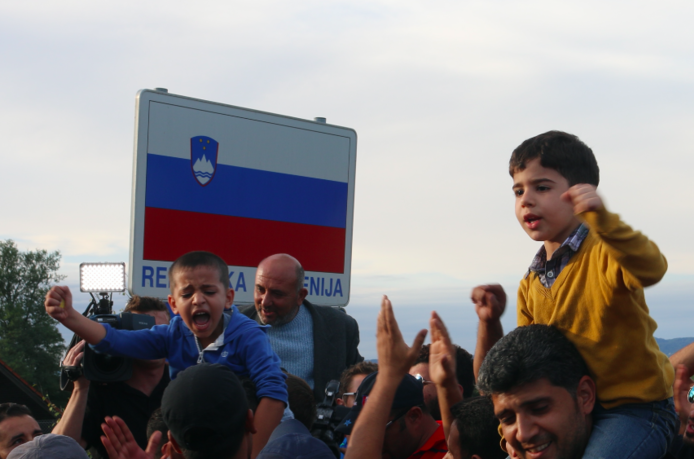

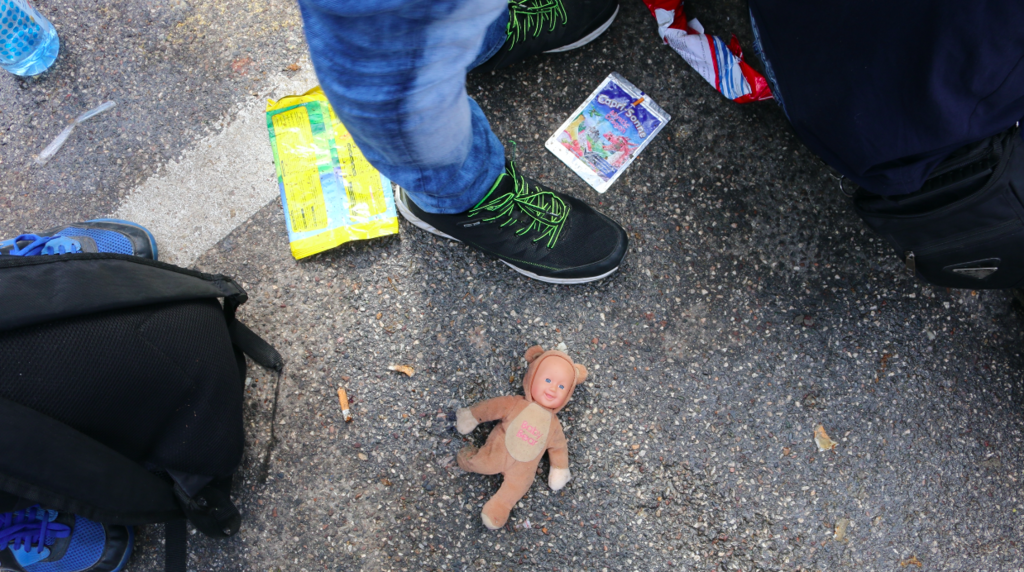
In the heat and tension of these standoffs, any sign of potential forward movement is seized upon. On Saturday afternoon, two Croatian border control officers set up perimeters for a line that families and children were asked to queue in, separated from the mass of refugees that bled across the bridge. They were told it was so they had priority to enter through the border first. Until that point, they had only heard whispers that buses were due to arrive to take them through Slovenia – now, there was a glimmer of hope that some may be given the chance to pass.
"Finally, they're letting us pass," said Amani, a 23-year-old mother of two from Aleppo as families frantically scuffled into lines. "I'm going to Germany, I'm going to meet my husband who is there already. I miss my husband every day."
Amani owned and worked in a hair salon at home, and took great pride in her work. It was only when bombs rained on her city, destroying her salon and killing a number of her friends, that she was forced to pack a bag and leave with her children.
Four hours later, the line had not moved. Children curled themselves around the bags that now lay strewn on the floor. A UNHCR worker walked to the barrier on the Slovenian side and told several refugees that the border would be remaining closed. It became clear to the refugees on the bridge that Slovenia had no intention of ever allowing the families to cross through to the other side.
"Maybe today, maybe tomorrow, maybe no days," Amani said. "It's a game, they are playing with us."

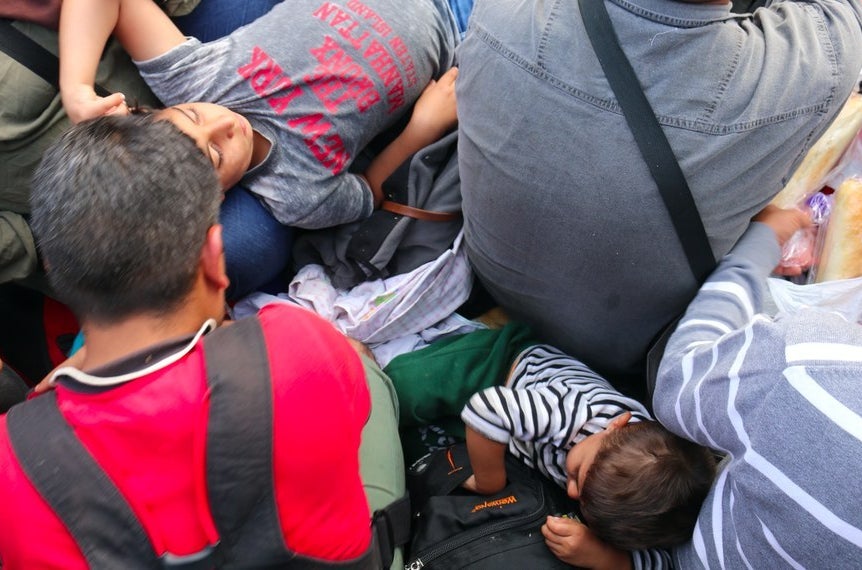
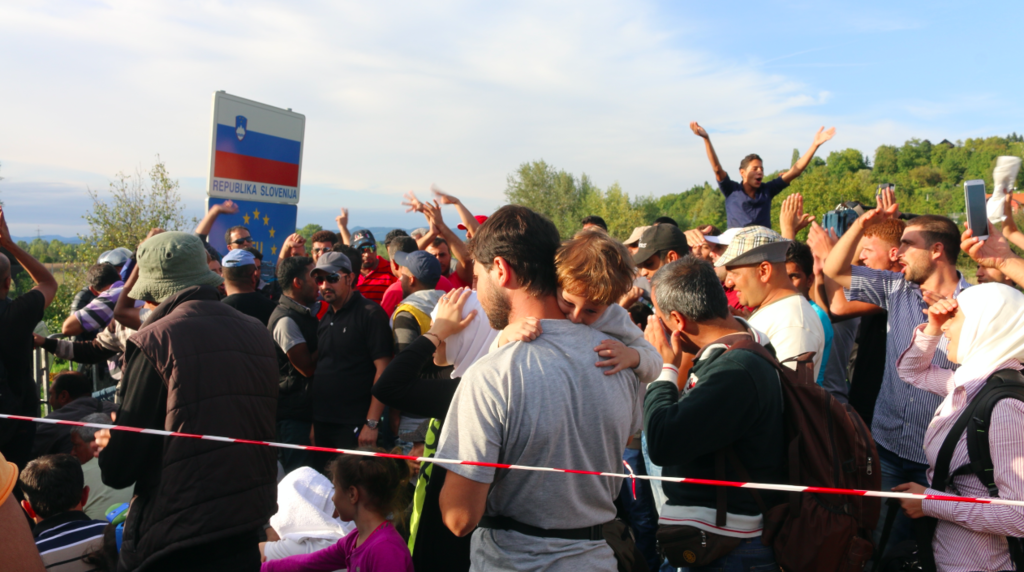
With both Slovenia and Hungary refusing to let people in, Croatia now finds itself with thousands trapped inside its borders. This latest round of the crisis was sparked by Hungary's decision to close its border with Serbia, a move which cut off the main migration route through the EU.
Croatian Prime Minister Zoran Milanovic – who had initially promised free passage for refugees before his unprepared government was overwhelmed by the tide of humanity – has called Hungary's action "incomprehensible" and said the situation in his country was the ugliest he had seen since the Balkans war.
"The EU is supposed to have a Common European Asylum System," said Judith Sunderland, associate Europe and Central Asia director at Human Rights Watch, in response to a failed attempt by countries to arrive at a conclusion in an EU meeting on Tuesday. "Yet EU governments can't even agree on how to share responsibility for those in need of refuge."
By sunset on Saturday night, the refugees who had stood all day on the bridge had grown exhausted. It began to rain. A young Syrian girl, who had been happily weaving in and out of the metal border barriers throughout the day, waved goodbye to the Slovenian police as she was called by her mother to go and sleep with their family. Others lay out blankets and slept on nearby grassy patches. All hoped to hear better news about the border when they awoke.
